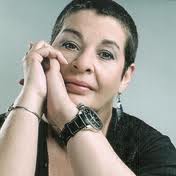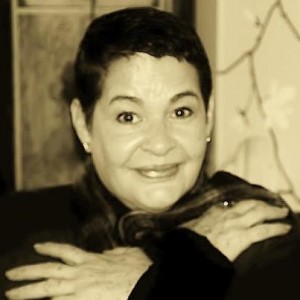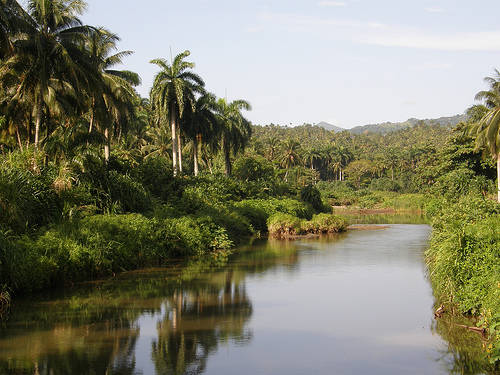María Elena Cruz Varela (born 1953, Colón, Cuba) is an award-winning poet, novelist and political activist. She was imprisoned for 18 months between 1991 and 1993 and then held under house arrest before going into exile in 1994.
At the time of her arrest in November 1991, Cruz Varela was an active member of Criterio Alternativo, an independent political analysis group. In June that year, the group had published a manifesto entitled ‘Declaration of Cuban Intellectuals’ demanding reforms, national debates and free elections. In March that year Cruz Varela was expelled from the National Union of Cuban Writers, which had awarded her the 1989 Julian de Casal prize. In the month before her arrest, Cruz Varela and other members of Criterio Alternativo had reportedly been handing out pro-democracy leaflets in Havana and had met foreign diplomats, asking them to take human rights abuses into account when considering aid for Cuba. On 19 November 1991, a crowd believed to have been under instructions from the government arrived at her house, physically assaulted her, and rammed Criterio Alternativo leaflets down her throat.
Cruz Varela was held in her home for three days before being arrested and taken to Villa Marista prison where she was held incommunicado for a few days. On 27 November 1991, she was sentenced to two years in prison for ‘disrespect for the institutions of Cuba’, ‘insulting the heroes of Cuba’, and ‘illegal association’. It was reported that she was not allowed a lawyer of her choice and that a sentence was decided before a hearing took place. There was an unsuccessful appeal a few days later. The poet was held in Combindado del Sur maximum security prison in Matanzas province. She was reportedly subjected to lengthy interrogation sessions during which a bright light was shone into her eyes, damaging her vision. Cruz Varela was finally released in May 1993, six months before the end of her sentence, but was then kept under house arrest.
It was also a lie, my lie of amianthus against the mortal fire. It was a lie, the squatting fear, the broken porcelain, the quality of the clay. It was a lie, a pious fiction for the dying one that we say sea and the fish jumped at our voices. We also said arc, intention, monotype or just another argument. They were all lies. Dumb, saddened, ineffective, futile lies. From Ballad of the Blood / Balada De La Sangre: The Poems of María Elena Cruz Varela / Los Poemas De María Elena Cruz Varela (Hardcover) trans. Deborah Digges and Mairym Cruz-Bernal (New York: Ecco Press, 1995)
He left Cuba in 1994 and spent time in Spain, before moving to the United States. Now he’s back to Spain to live in Madrid.
Since 2007, the weekly literary criticism The Cultural, in Journal World. Founder, editor and columnist of the newspaper La Razon, Madrid, Spain, from 1997 to 2002. Posted Cuba’s daughter. Two homelands had … (Historical novel. Ed Martinez-Planet Rock. Madrid, Spain, 2006), Joan of Arc. The heart of the executioner. (Historical novel. Ed Martinez-Planet Rock. Spain, 2003.), Adam’s voice and I (Ed Poesía. I ski, Ferrol, Spain, 2000), and The Angel Sold. (Ed. Plaza & Janes, Spain, 1999), among many others.
Among his numerous literary and humanitarian awards highlight the Mariano de Cavia Spanish Press (1995) and National Poetry Julián del Casal (Cuba, 1989). It also has the honor of being awarded the Freedom of the Liberal International (1992) and was nominated for the Nobel Peace Prize and Prince of Asturias Award for Letters and the Concordia. He was recently awarded the Medal La Avellaneda in 2012 by the Cuban Cultural Center of New York.
Sources: Wiki/M.E.CruzVarelaStory/InternetPhotos/TheCubanHistory.com
Maria Elena Cruz Varela/The Cuban History/ Arnoldo Varona, Editor
MARIA ELENA CRUZ VARELA, POETISA
María Elena Cruz-Varela- (Colón, Matanza, Cuba, 1953). Poeta, escritora, periodista, y crítica. Líder del grupo disidente cubano Criterio Alternativo. Condenada por el régimen de Fidel Castro, después de un juicio sumarísimo, a dos años de cárcel. Después de sufrir prisión y torturas, fue liberada.
En el momento de su detención en noviembre de 1991, Cruz Varela fue un miembro activo de Criterio Alternativo, un grupo independiente de análisis político. En junio de ese año, el grupo había publicado un manifiesto titulado “Declaración de los intelectuales cubanos” reformas exigentes, debates nacionales y elecciones libres. En marzo de ese año, Cruz Varela fue expulsado de la Unión Nacional de Escritores de Cuba, que le había otorgado el 1989 Julián de Casal premio. En el mes antes de su detención, Cruz Varela y otros miembros de Criterio Alternativo habían sido repartiendo volantes a favor de la democracia en La Habana y había conocido a diplomáticos extranjeros, pidiéndoles que tomar abusos contra los derechos humanos a la hora de considerar la ayuda de Cuba. El 19 de noviembre de 1991, una multitud cree que fue por instrucciones del gobierno llegó a su casa, ella físicamente asaltado, y embistió Criterio Alternativo folletos en su garganta.
Cruz Varela tuvo lugar en su casa durante tres días antes de ser arrestado y llevado a Villa Marista, la prisión donde estuvo detenida en régimen de incomunicación durante varios días. El 27 de noviembre de 1991, fue condenada a dos años de cárcel por “falta de respeto a las instituciones de Cuba”, “insultar a los héroes de Cuba” y “asociación ilícita”. Se informó de que no se le permitió a un abogado de su elección y que una sentencia se decidió antes de una audiencia tuvo lugar. Hubo una apelación sin éxito a los pocos días. El poeta se celebró en Combindado del Sur prisión de seguridad máxima en la provincia de Matanzas. Ella fue sometido a largas sesiones de interrogatorio durante el cual brillaba una luz brillante a los ojos, dañando su visión. Cruz Varela fue lanzado finalmente en mayo de 1993, seis meses antes del final de la frase, pero luego se mantuvo bajo arresto domiciliario.
Abandonó Cuba en 1994 y vivió un tiempo en España, antes de trasladarse a Estados Unidos. Ahora ha vuelto a España para vivir en Madrid.
Desde 2007 es crítica literaria del semanario El Cultural, en Diario El Mundo. Fundadora, editora y articulista del periódico La Razón, Madrid, España, de 1997 a 2002. Ha publicado La hija de Cuba. Dos patrias tuve… (Novela histórica. Ed. Martínez -Roca de Planeta. Madrid, España, 2006),Juana de Arco. El corazón del verdugo. (Novela histórica. Ed. Martínez-Roca de Planeta. España, 2003.), La voz de Adán y Yo (Poesía. Ed. Esquío, Ferrol, España, 2000), y El Ángel Agotado. (Ed. Plaza & Janés, España, 1999), entre muchos otros.
Entre sus innumerables premios literarios y humanitarios destacan el de Mariano de Cavia de Prensa Española (1995) y el Nacional de Poesía Julián del Casal (Cuba, 1989). También tiene el honor de haber recibido el Premio Libertad de la Internacional Liberal (1992) y fue candidata al Premio Nobel de la Paz y a los premios Príncipe de Asturias de las Letras y de la Concordia. Recientemente fue galardonada con la Medalla La Avellaneda del 2012 por el Centro Cultural Cubano de Nueva York.
Sources: Wiki/M.E.CruzVarelaStory/InternetPhotos/TheCubanHistory.com
Maria Elena Cruz Varela/The Cuban History/ Arnoldo Varona, Editor





